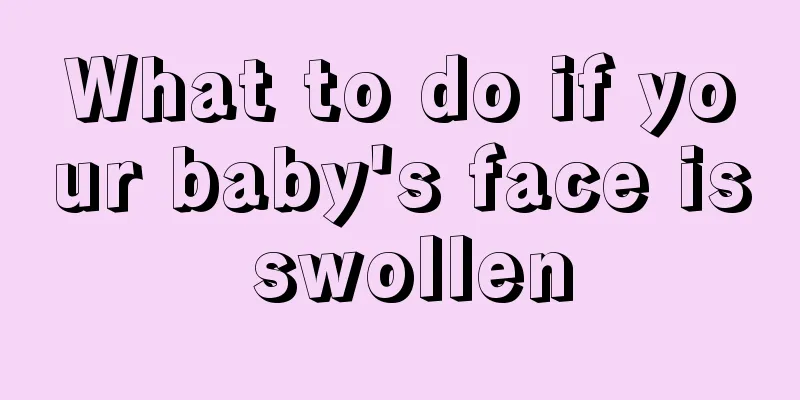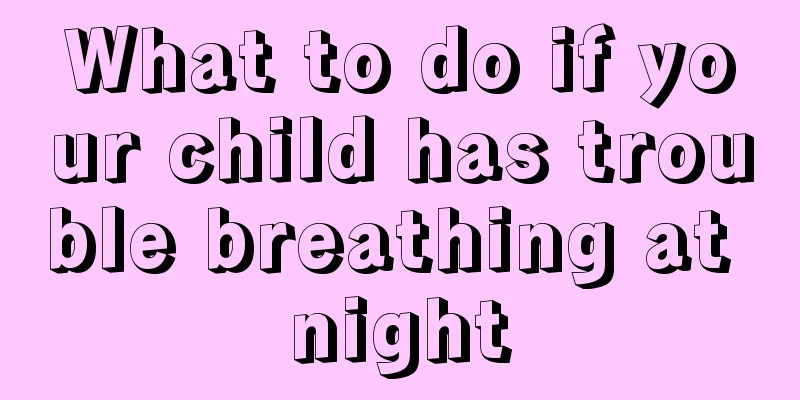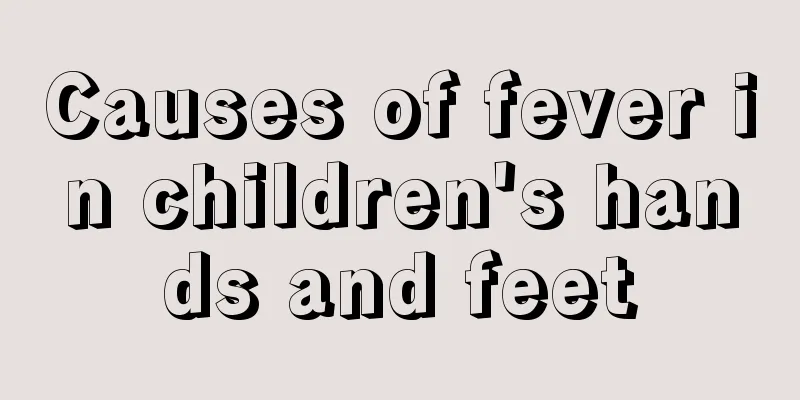What should I do if my baby has hives?

|
Babies are the focus of care for their parents, and any disturbance will make parents restless. Moreover, since babies are still in the stage of physical development, their immunity is not high, their skin is thin, and their functions are not fully developed. Therefore, once the baby suffers from a certain disease, it will have a great impact on the baby's growth. So, what should you do if your baby has urticaria? Urticaria is commonly known as "wind rash" and "wind mass". People often think that it is a reaction of the skin after being blown by a certain kind of wind. In fact, the cause of urticaria is still unknown. It may be related to diet, drugs, insect bites, pollen, intestinal parasites, etc. When urticaria occurs, the skin will have erythema and edema. In most cases, erythema will appear first, followed by edema. Children only have erythema without edema, and adults There is edema but the erythema is not easily noticeable. Urticaria can occur anywhere on the skin, spread to the whole body within a dozen minutes, and disappear within 1-2 hours. As the saying goes, "quickly come, quick go." The rash is so itchy that people often scratch it, leaving scratches that protrude from the skin surface. Sometimes it is sent several times a day; sometimes it is sent once every few days. For children with frequent attacks of urticaria, parents are advised to record their children's daily life (such as what foods they have eaten, where they have been, what odors they have smelled, etc.) in the hope of finding allergens, avoiding contact with allergens in the future, and reducing the occurrence of urticaria. Sometimes, in addition to urticaria on the skin, there are also bursts of severe abdominal pain. This phenomenon indicates that the gastrointestinal mucosa is also affected by allergens, causing edema and congestion. The most serious thing is that the laryngeal mucosa may also become edematous due to allergies, causing laryngeal obstruction, affecting breathing, especially making inhalation difficult. At this time, tracheotomy is needed for rescue. Although this situation is rare, you should be vigilant. Some parents believe that urticaria is caused by eating seafood, so they forbid their children to eat such food. In fact, this approach is not correct. The traditional Chinese medicine treatment of acute urticaria focuses on dispelling wind, clearing heat and removing dampness: Prescription 1: 10 grams of Schizonepeta, 10 grams of Saposhnikovia, 30 grams of Lithospermum, 30 grams of Astragalus, 20 grams of Sophora flavescens, 20 grams of Kochia scoparia, and 20 grams of Taraxacum. Decoction in water. Prescription 2: 10 grams of hemp, 10 grams of cicada shell, 10 grams of forsythia, 10 grams of duckweed, 10 grams of moutan bark, 10 grams of peach kernel, 20 grams of white moss peel, decocted in water and taken orally. You can choose either one of the above two methods to be taken orally. Chronic urticaria and repeated attacks can lead to blood deficiency, which can cause wind, forming a vicious circle. Traditional Chinese medicine theory holds that "to treat wind, you must first treat the blood, and when the blood circulates, the wind will disappear." Therefore, Chinese medicine that nourishes the blood and yin should be added to the treatment. Prescription: 20 grams of Rehmannia root, 20 grams of Polygonum multiflorum, 12 grams of Angelica sinensis, 12 grams of White Peony Root, 10 grams of Saposhnikovia divaricata, 10 grams of Moutan Bark, 10 grams of Polygonatum odoratum, 10 grams of Schizonepeta tenuifolia, 30 grams of jujube, and 30 grams of ginseng leaf. Decoction in water. The traditional Chinese medicine treatment for urticaria mainly adopts the method of oral administration. If the skin itching is unbearable, you can also use 1 to 2 Chinese herbal medicines such as purple-backed duckweed, Xanthium sibiricum, Schizonepeta tenuifolia, Perilla frutescens leaves, and Stemona bulbs, and boil 120 grams of each into a decoction for external washing. |
<<: What vaccines should newborns receive?
>>: What to do if a newborn has eczema on his face
Recommend
Don't panic when your child has a nosebleed. How to stop the bleeding quickly
Nosebleeds are mainly caused by bumps, dry weathe...
What to do if your 2 month old baby has green poop
We all know that taking care of a baby is not an ...
What to do if teeth grow backwards
During the process of tooth growth, we often enco...
The dangers of a child having a persistent fever of 38 degrees
If a person's body temperature is around 38 d...
Is hematuria in children life-threatening?
Both men and women can have hematuria, and it can...
Can babies eat grapefruit? Don't eat too much!
Grapefruit is a very common fruit. Eating grapefr...
Can bell peppers be fed to babies?
Bell peppers are sweet peppers, a very delicious ...
The main harm of beating and scolding children
Some parents have a bad temper. When their childr...
Emergency treatment for burns in children
Because most children are rather naughty and have...
Scar repair after cleft lip surgery
Currently, the only relatively safe and secure me...
What are the dangers of taking Xiaoer Qizhen Dan?
Xiaoer Qizhen Dan is actually a common Chinese pa...
Why does the baby have difficulty breathing when sleeping?
Babies have relatively weak resistance, and some ...
How to prevent and treat astigmatism in children
Astigmatism is a relatively common vision disease...
What to do if your child has a poor memory? 6 ways to improve memory
Children's memory is that they remember thing...
What to do if your child's anus is red
Because children's skin is relatively tender,...









